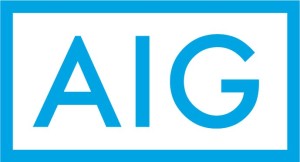

If there’s one thing that AIG’s top leaders have tried to get across, it is this: COVID-19 is like nothing else the industry has faced, it will impact nearly every part of what insurers do in the future, and insurers will have to make “thoughtful and prudent” adaptations to it as they go along.
American International Group was so focused on the coronavirus pandemic during its Q1 2020 earnings call on May 5 that the discussion went extra-long. Many remarks centered around what AIG and other insurers are confronting now as COVID-19 continues its invasion around the world.
 “We believe COVID-19 will be the single largest cat loss the industry has ever seen,” CEO Brian Duperreault said during the call, adding expectations of “significant global and economic ramifications for the foreseeable future.”
“We believe COVID-19 will be the single largest cat loss the industry has ever seen,” CEO Brian Duperreault said during the call, adding expectations of “significant global and economic ramifications for the foreseeable future.”
Peter Zaffino, AIG’s president and global chief operating officer and CEO of its General Insurance arm, went further.
“While the insurance industry manages risks of all kinds, it is fair to say that the profound impact and global nature of COVID-19 is something we have never encountered,” he said. “There is no playbook, and as a result, we are called upon to make thoughtful and prudent decisions in a climate of unprecedented uncertainty.”
Zaffino noted that other catastrophes like wildfires, hurricanes and earthquakes are confined to specific geographic regions, where COVID-19 has already impacted more than 200 countries and territories. It is also a catastrophe event with a so-far unlimited duration, where traditional catastrophes have a clear beginning and end. They also had defined losses after a time, with previous record-holder Hurricane Katrina producing $65 billion in losses, and Hurricane Irma and Superstorm Sandy producing about $30 billion in insured losses each.
COVID-19 so far is not allowing the insurance industry to make defined predictions, Zaffino said.
“With respect to COVID-19, we are starting to see early industry estimates, but they have significant ranges” because of the ongoing nature of the crisis, he said. Later in the call, he pointed out that “COVID-related losses will impact all aspects of underwriting [and] insurance, from absolute limits available, limits deployed to certain lines of insurance, terms of conditions and structure of coverage, just to name a few.”
Reinsurance won’t be immune to those headwinds either, Zaffino said.
“With respect to the reinsurance market, unlike traditional named peril catastrophes, COVID was not modeled, and therefore it will be a headwind for future capacity, Zaffino said. “We believe the retro market will contract and in the ILS market there will be trapped capital, which will lock up collateral, therefore restricting capital on a go-forward basis. We’re already seeing this.”
AIG’s Estimate So Far
AIG estimated that $272 million of $419 million in pretax catastrophe losses for the 2020 first quarter came from COVID-19 losses in travel, contingency, commercial property, trade credit, workers compensation and Validus Re-related losses.
Zaffino said the number came from “considerable” analysis of exposures for its General Insurance (property/casualty) business. Claims came from Asia, the United Kingdom and Continental Europe, and later in the first quarter from the United States.
Some of that estimate addresses potential business interruption losses, but Zaffino said the “overwhelming majority” of its related commercial policies contain exclusions for losses related to viruses, “and otherwise showing that the virus caused direct physical loss or damage that was the cause of business interruption.”
Zaffino said he is confident that the policies will sustain any legal challenges, and added that he expects AIG’s reinsurance program to help protect its portfolio from other COVID-19 losses that will hit it.”
Depending on factors including line of business and geography, Zaffino said that AIG’s exposure “will be limited.”
AIG will evaluate conditions for its business as COVID-19 continues to evolve, doing so deliberately and carefully, he said.
“We have a very thorough process and will be consistent all the way through,” Zaffino said. “We know the [catastrophe] is still ongoing, which is very rare, so as things develop we will adapt to that.”
One variable Duperreault pointed out is that as COVID-19-related claims come in, other claims in other lines might decline, so the effect COVID-19 might have on lines such as workers comp remains to be seen.
AIG 200
During AIG’s 2019 fourth-quarter earnings call in February, AIG said it will invest $1.3 billion over the next three years in AIG 200, a modernization program designed to revamp and improve core processes, technology infrastructure and services.
Now that COVID-19 has hit, Duperreault and Zaffino said the program is full-speed ahead, with a few minor adjustments to account for pandemic logistics.
AIG 200 will help the insurer “emerge from the crisis not only as a stronger company but also as a global insurer of choice with significant capital and financial flexibility,” Duperreault said.
Zaffino said the modernization process helped AIG adapt quickly to global quarantines and work-from-home orders, “as we repositioned global colleagues to the global environment literally within days.”